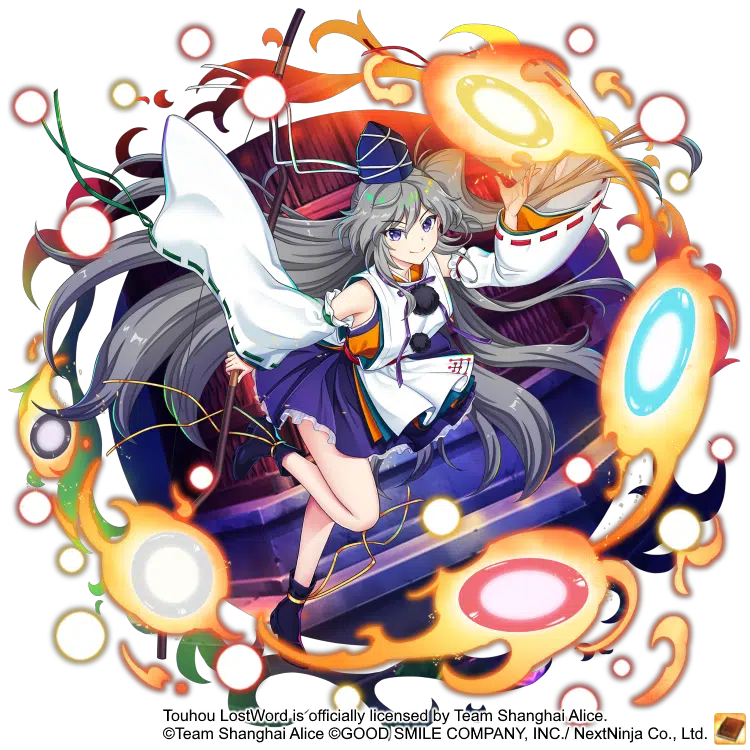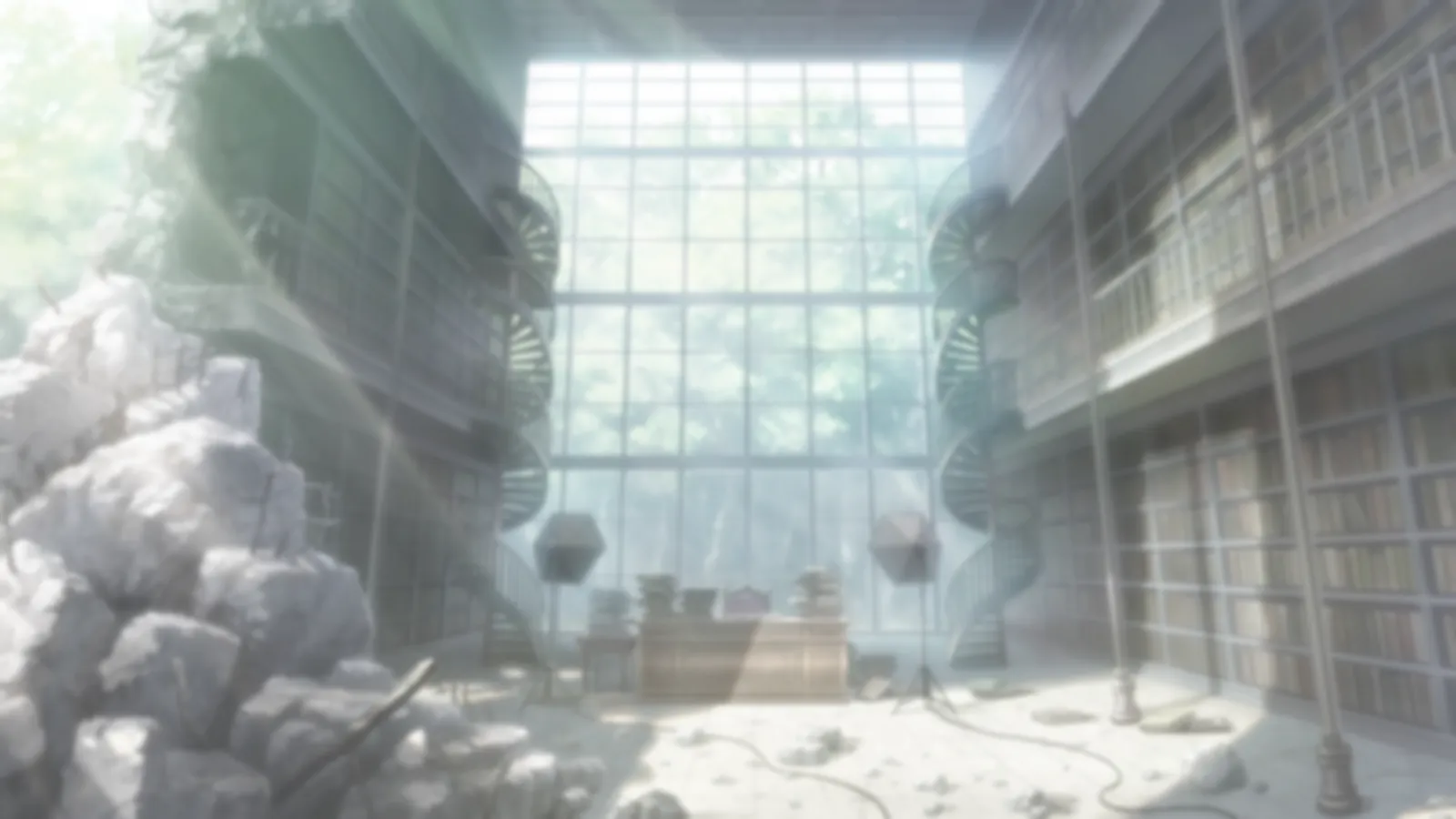Mononobe no Futo
The Shikaisen from Super Ancient Japan
The usual outfit of Futo from the world drowning in divine spirits. She's a Taoist, warrior, and shrine maiden!
The Shikaisen from Super Ancient Japan

The usual outfit of Futo from the world drowning in divine spirits. She's a Taoist, warrior, and shrine maiden!
Voice Lines
Voice Sets
Ultra-Mysterious Revival
VA: Shouji Mao
Overly Syncretic Taoism
VA: Chikasada Tsukino
Super Secret Mononobe Arts
VA: Mizumori Chiko
Character Information
Temperament: Houen Dan-U
Ability/Backstory: Capable of manipulating feng shui (Prolonged)
Attacks
Mononobe Martial Arts
The Spread Shot of Mononobe no Futo from the world drowning in divine spirits (a Touhou LW original). She attacks with the secret warrior techniques of the Mononobe. Futo's clan, the Mononobe, was one of the most powerful clans in ancient Japan. Given that, in later centuries, Japan was ruled by samurai, the warrior class, the militaristic Mononobe clan could be considered ahead of its time. Then again, perhaps it's only because of their focused military might that they managed to develop into such a powerful and adaptable clan in the time before power was divided among different roles in the central government. Militaries were first created to protect farmland, crops, and the peasants who worked the fields. Losing any one of these would spell that community's defeat. Having a military force was a vital security measure back then because of the importance of rice and agriculture.
Bullets
- Mononobe Martial Arts
- Great Mononobe Martial Arts
- Powerful Mononobe Martial Arts
- Secret Mononobe Martial Arts
- Super Mononobe Martial Arts
- Ultimate Mononobe Martial Arts
Five-Colored Feng Shui
The Focus Shot of Mononobe no Futo from the world drowning in divine spirits (a Touhou LW original). She attacks using the Mononobe's Taoist techniques that originated from China. The Mononobe were diviners as well as warriors. It's theorized that the "mono" in their name refers to supernatural powers, indicating their prowess at divination and spirit magic. It was a time when lives hinged on the success of the harvest, and the only way to predict it was through divination. Since time immemorial, humans have wanted to know the future, and they have developed many techniques in pursuit of this lofty goal. However, the first step was to find more accurate divinations, and the people who could provide them were valued beyond measure.
Bullets
- Five-Colored Feng Shui
- Great Five-Colored Feng Shui
- Powerful Five-Colored Feng Shui
- Secret Five-Colored Feng Shui
- Super Five-Colored Feng Shui
- Ultimate Five-Colored Feng Shui
Heaven Sign: Iwafune Ascending to Heaven
A Spell Card of Mononobe no Futo from the world drowning in divine spirits. She evokes the power of a Sun god's descendant. Many outside world theories speculate on the connections between the Yamato Kingship and the Mononobe clan. One claims that the Mononobe clan came first, and that they descended from a family that ruled over the entire Izumo region. Whereas the Yamato worshipped Amaterasu, the first Mononobe worshipped a different Sun god called Nigihayahi.
Bullets
- Iwafune Ascension
- Great Iwafune Ascension
- Divine Iwafune Ascension
- Speedy Iwafune Ascension
- Super Iwafune Ascension
- Ultimate Iwafune Ascension
Blaze Sign: Sakurai Temple in Flames
A Spell Card of Mononobe no Futo from the world drowning in divine spirits. She evokes the power of a Sun god's descendant. Outside world data states that the progenitor of the Mononobe clan was Umashimaji, the son of Nigihayahi. The sword, Futsu no Mitama, was given as an offering to Umashimaji's half-brother, Ame no Kaguyama. One of Umashimaji's other names is Umashimami, written with the characters for "taste," "between," and "see," which suggests he might be a skilled cook.
Bullets
- Sakurai Temple Fire
- Great Sakurai Temple Fire
- Blazing Sakurai Temple Fire
- Terrible Sakurai Temple Fire
- Sakurai Temple Inferno
- Ultimate Sakurai Temple Inferno
Hidden Sun - Futsu no Mitama God
The Last Word of Mononobe no Futo from the world drowning in divine spirits (a Touhou LW original). She transmutes her Sun god descendant blood into weapons. According to outside world data, the Ise Grand Shrine is dedicated to Amaterasu and Toyouke, a god of rice cultivation, signifying the strong connection between rice and the Sun. Some legends claim that before Amaterasu was housed in Ise, she was worshipped in multiple different shrines in different lands, and that as she moved, the interpretations of her changed. In the Nihon Shoki, one of the earliest Japanese texts, Ise was described as the "umashi" land. In this context, "umashi" means "good and beautiful," but it is generally understood to mean "tasty," which has led people to believe that the food in Ise is particularly delicious. When Futo calls herself a "hallowed maiden," she is probably referring to an Oomonoimi, a type of shrine maiden who cooks meals using fresh rice and presents them as offerings to a Sun god. It's possible that this ritual was first devised by the Mononobe clan at Isonokami Shrine (which houses Futsu no Mitama), and was only later appropriated by the Yamato Kingdom as a ritual to venerate Amaterasu. However, this is all speculation based on outside world data.
Bullets
- Hidden Sun Faith
- Great Hidden Sun Faith
- Ardent Hidden Sun Faith
- Zealous Hidden Sun Faith
- Glorious Hidden Sun Faith
- Ultimate Hidden Sun Faith
Skills
Skill: Isonokami Sanctuary
Legends of Futsu no Mitama were passed down through the generations of the Mononobe clan. It is a divine sword that was used to subjugate ancient Japan.
Skill: Oomiwa Sanctuaries
Three sacred rocks form a threefold barrier. The mountain is itself a shintai, a vessel for the gods.
Skill: Umashikuni Sanctuary
A good and beautiful land, blessed with delicious food.


